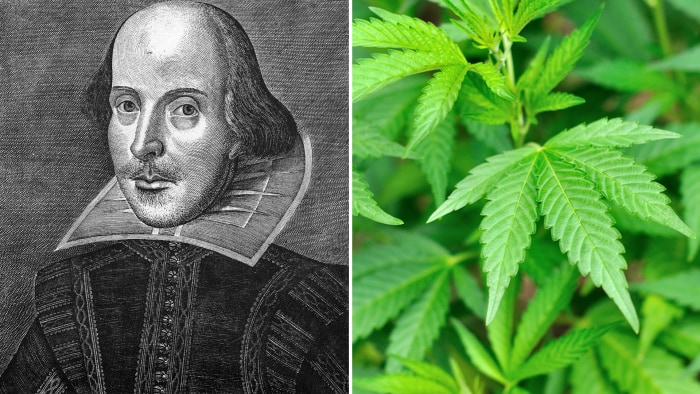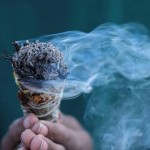Hulton Archive / Shutterstock
Legendary authors of the 16th and 17th centuries — they’re just like us!
Well, like some of us anyway. According to a study originally published in the South African Journal of Science, William Shakespeare may very well have been a user of marijuana. In the study, clay pipes found in the garden of Dude Bill’s home at Stratford-upon-Avon in the UK were analyzed and evidence of cannabis was found in some of them.
If Shakespeare did use a bit of weed, he would hardly have been out of step in Elizabethan England — hemp was the second-most-cultivated plant in the country at that time (after wheat), according to Harvard Magazine. Hemp fibers were used to make rope, paper, clothing and sails. The cannabis plant (Cannabis sativa) can be grown to create tough fibers or to be smoked for its psychoactive uses.
Scrapings taken by researchers from the clay bits found in Shakespeare’s garden were subjected to gas chromatography and a mass spectrometer, and turned up evidence of marijuana-related compounds.
Shakespeare and the weed? Not so fast, say experts.
Of course, this is a far cry from knowing that Shakespeare himself kicked back with the equivalent of a bong, or that it had anything to do with his literary inspiration (his phrase “noted weed” in Sonnet 76 is largely considered by scholars to refer to clothing, rather than smoking).
Shakespeare authority Professor Stephen Greenblatt found the results (which were originally publishedin 2001 but are now being revived in a fresh call to action from the study’s author Francis Thackeray) funny, but not convincing.
“I suppose it’s remotely possible that Shakespeare and his family were getting a buzz from what they were smoking, but I very much doubt that it played any meaningful role in his life,” he told HarvardMagazine![]() in 2001. “Shakespeare never mentions pipes, tobacco, or smoking anywhere in his poems or plays.
in 2001. “Shakespeare never mentions pipes, tobacco, or smoking anywhere in his poems or plays.
“Alcohol is a much more likely stimulant for Shakespeare’s imagination, and even that is probably unimportant,” he added. “The 17th century gossip John Aubrey described Shakespeare as not much of a partygoer — when he was invited to a debauch, he’d beg off, saying he was in pain. More likely, he was working on another play.”









